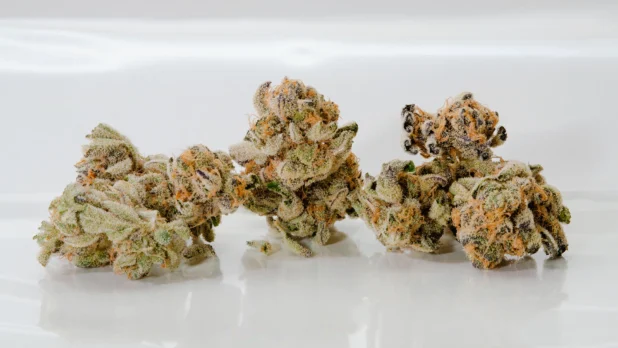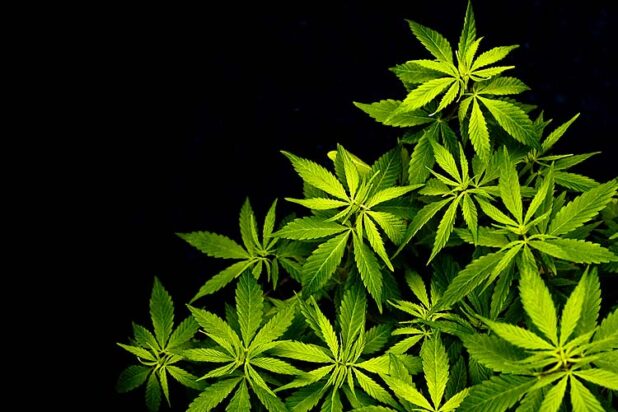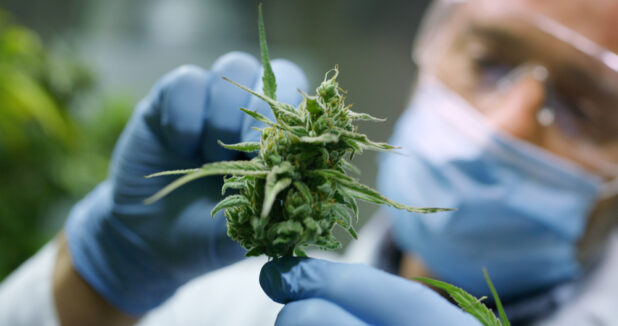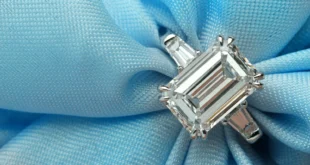Cannabinoids like CBD and tetrahydrocannabinol (THC or Delta-9 THC) have gained increased popularity in the last decade for their medical benefits. But as new discoveries are made, other forms of THC, such as Delta-8 THC, are also becoming increasingly popular.
In the cannabis space, Delta-8 THC seems to be getting the most attention recently. This is major because it has some similarities to Delta-9 THC but produces a milder effect on users. It can readily be found in different forms of Delta 8 edibles; however, a lot of questions are being asked about whether it is a natural or synthetic cannabinoid. Since synthetic cannabinoids are known to have adverse effects, it’s understandable why that is a concern for most people.
Table of Contents
What Is Delta-8 THC?
Delta-8 THC is a naturally occurring cannabinoid that is derived from cannabis plants. It is quite similar to Delta-9 THC, another derivative of the cannabis plant that produces a high feeling when consumed. However, it has slight structural differences that make it less potent than Delta-9 THC.
Similar to Delta-9, Delta-8 causes feelings of euphoria and relaxation. It can also have pain-relieving effects but in a milder way. Its milder effects can be a benefit when compared to the more pronounced effects of Delta-9.
Is Delta-8 THC Natural or Synthetic?

Delta-8 THC is only one out of over 100 cannabinoids that are naturally found in the cannabis plant. With that said, it means that it is a natural cannabinoid. However, there are concerns about whether it is synthetic since it is found only in small amounts in the cannabis plant.
While Delta-8 THC is naturally occurring, its natural form is considerably in small amounts (0.1%), too small to be produced into consumable amounts. As a result, large amounts are being produced in a lab from hemp-derived CBD.
You may now be wondering, If it is produced in a lab, doesn’t that make it synthetic?
The answer is no. This is because it is derived from a natural CBD, not synthesized from inorganic substances. As such, it cannot be legally classified as a synthetic cannabinoid.
What Is a Synthetic Cannabinoid?
Synthetic cannabinoids are man-made cannabinoids. They are designed to bind to the brain receptors in the same way as natural cannabinoids. Although they imitate natural cannabinoids, they’re purely artificial.
Synthetic cannabinoids belong to a group of drugs known as the New Psychoactive Substances (NPS). This group of drugs is referred to as unregulated mind-altering substances as they are intended to cause the same negative effects as illegal drugs. Examples of synthetic cannabinoids include “K2” and “Spice”.
“K2” and “Spice” are considered to be illegal. They are not derived from cannabis plants, rather, they are synthesized from chemicals that are both harmful and addictive. While they may interact with the body in similar ways like Delta-8 THC, and Delta-9 THC, they bind more strongly to the brain, which makes them highly psychoactive.
Why Does It Matter if Delta-8 THC is Synthetic or Not?

When it comes to hemp-derived products, there are many reasons why it matters if such products are synthetic or natural. The first reason is health and safety concerns. The effects of synthetic cannabinoids are unpredictable, which makes them extremely dangerous to consume. As a result, synthetic cannabinoids are banned in most states.
Some common side effects associated with the use of synthetic cannabinoids include:
- Paranoia
- Extreme anxiety
- Confusion
- Hallucination
- Violent behavior
- Rapid heart rate
- Suicidal thoughts
Frequent use of synthetic cannabinoids can also lead to addiction in users. Regular users who try to quit may experience severe withdrawal symptoms, and treatments such as behavioral therapy and medications have not yet been tested for treating addiction to synthetic cannabinoids.

Also, because there is no proper prescription for synthetic cannabinoids, users may overdose and experience life-threatening symptoms such as:
- Elevated blood pressure
- Toxin reaction
- Shortage of blood supply to the heart
- Kidney damage
- Seizures
To sum it up, synthetic cannabinoids are not safe to use. They can lead to life-threatening symptoms or even death. Before consuming any hemp-derived products, it’s best to find out if they are synthetic or not to ascertain their safety for consumption.
Delta-8 THC is not classified as a synthetic cannabinoid and does not pose any danger. Whether in its natural state, found in small amounts in the cannabis plant, or when derived from CBD, it is considered to be a safe cannabinoid.
 World Magazine 2024
World Magazine 2024






